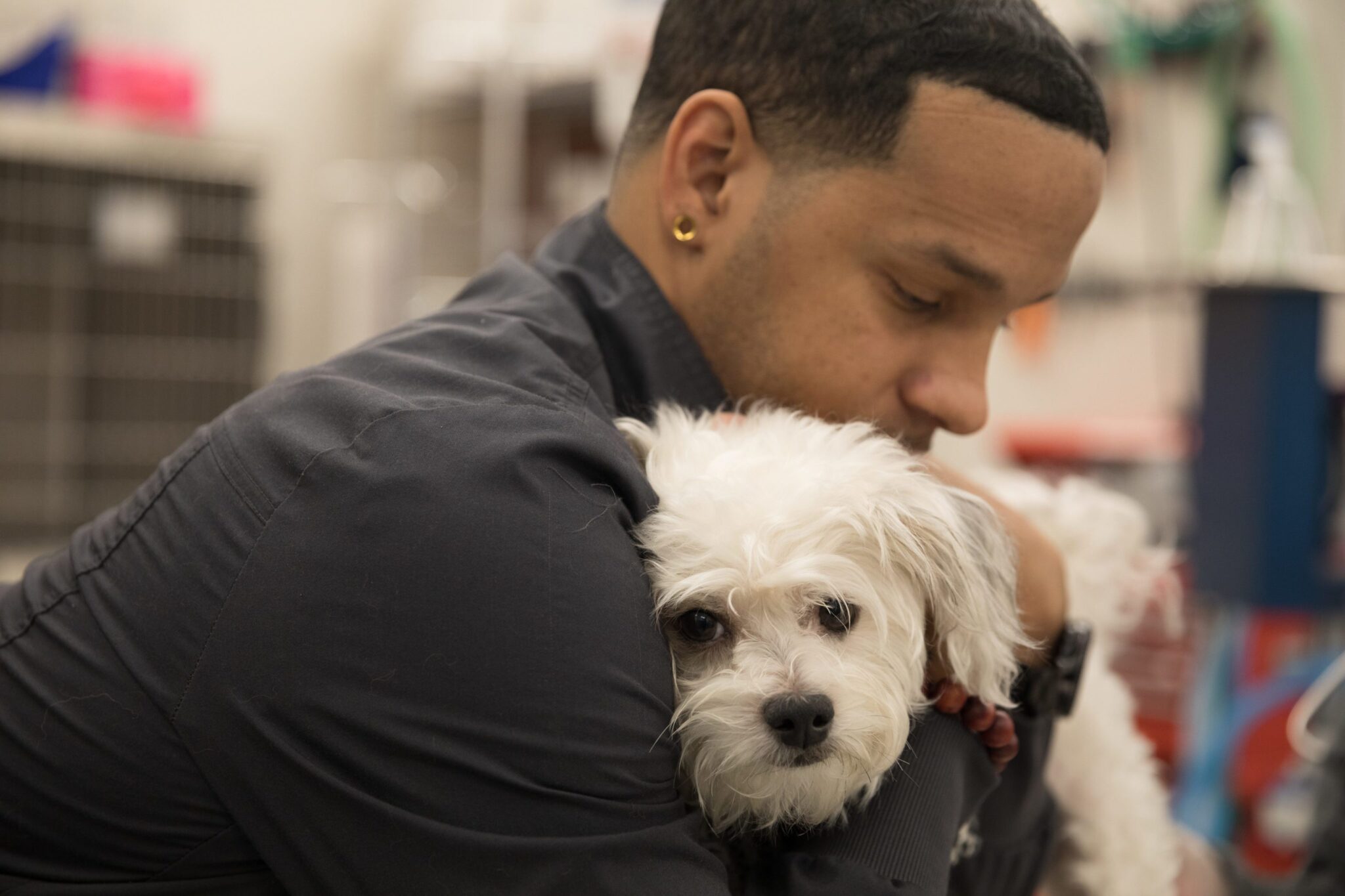
Dog Arthritis: Symptoms and Treatment
Dr. Chuck Kalb
Call & Speak with a doctor Open 24/7, Even Holidays!
Walk in today for:
Emergencies
Point-of-Care Ultrasound
Urgent Care
X-Rays
Diagnostics + Testing
End-of-Life Care
Surgery
Treatment + Hospitalization
Does your dog have arthritis, or do you suspect that she might? Do you know what to expect in terms of treatment for canine arthritis? Is there anything you can do to help your dog deal with this chronic condition?
Arthritis is very common in dogs, especially as they get older. If your dog is older and is having some mobility issues, chances are good he’s dealing with arthritis as well. Although there is no cure for arthritis, there are many treatment options you can try with the help of your vet to ease your dog’s joint pain.
Symptoms
Listed below are the main symptoms of dog arthritis:
Stiffness
Stiffness is one of the earliest and most common signs of arthritis in dogs. Many pet owners believe their dogs are just slowing down due to advanced age; however, much of the time, the real problem is arthritis. If your dog seems to be stiff when she moves, especially when she first wakes up in the morning or after a long nap, she may be dealing with the early stages of canine arthritis.
Pain
Pain is another common and early sign of arthritis in dogs. Dogs may show pain differently and may sometimes try to hide their pain entirely, so it may take a while for you to notice this problem. However, if you try to pet your dog and she becomes defensive of her legs or joints, this is a sign of arthritis.
Hiding or Aggression
Along with pain, some dogs may hide often so their human family members do not see their pain symptoms. On the other hand, dogs may sometimes become more aggressive than usual due to their pain. Either of these sudden changes in your pet should warrant a trip to the vet.
Unable to Climb Stairs
Many dogs with mild arthritis retain much of their mobility, but are unable to climb stairs successfully. If you notice your dog is specifically struggling to get up and down stairs like she used to, then there is a good chance arthritis is the issue.
Unwilling to Play
An unwillingness to play or stay active typically means your dog is not feeling when she tries to do so. This symptom on its own may indicate a variety of health problems, so you should take your pet to the vet if you notice this issue lasting for more than a couple of days.
Loss of Appetite
Like an unwillingness to play, a loss of appetite may signify many health issues in dogs. Take your pet to the vet if she experiences a loss of appetite that lasts longer than a day or two. Combined with other items on this list, a loss of appetite may signify arthritis pain.
Treatment
The main treatment methods are listed below:
Supportive Bedding
You can try providing your dog with supportive, orthopedic bedding designed specifically for dogs with arthritis. You do not need to check with your vet before trying this option. Consider also choosing a passive heating mat for your dog, which can recirculate her body heat to keep her joints warm and comfortable.
Physical Therapy
Physical therapy may be a good solution for your dog, depending on your vet’s recommendations. Physical therapy and medical massages are both available at many vet offices and vet specialty clinics.
Gentle Exercise
Although your dog may have trouble moving around like she used to, and it may not be wise to encourage her to be as active as she was in the past, gentle exercise may help. Take her on short or leisurely walks on mostly flat surfaces, and toss a ball gently around for her to chase in the backyard or dog park.
Medication
Your vet may recommend pain management medication for your dog. Some dogs respond well to pain medication for their arthritis, while others do not. It is up to you and your vet to determine whether or not pain medication is a good solution for your dog.
Acupuncture
Acupuncture is not for everyone, nor is it for every dog. However, this alternative medicine solution has been known to help relieve some of the inflammation and pain associated with arthritis in dogs. If your vet offers acupuncture or can recommend a good location for this type of treatment, it may be worth a try for your dog.
Contact VEG if Your Dog Has Arthritis
Based on this information, you can better understand the symptoms of arthritis in dogs. You can also recognize the different types of treatment available for your pet, and you can narrow down the possibilities to choose the one that’s right for your dog, too.
Always discuss potential arthritis treatment options with your vet before making any major changes to your pet’s health or wellness routine. Your vet can give you specific, accurate information about your own dog’s needs based on her overall health, and the vet can also help you choose the right management for your pet’s arthritis.
Contact VEG if you notice any of the signs of arthritis in dogs mentioned above. We have locations all over the country, which are all open 24/7, including holidays. When you call VEG, you’ll talk with an emergency veterinarian who will help guide you in the best direction and offer advice on what to do next for your pet.

